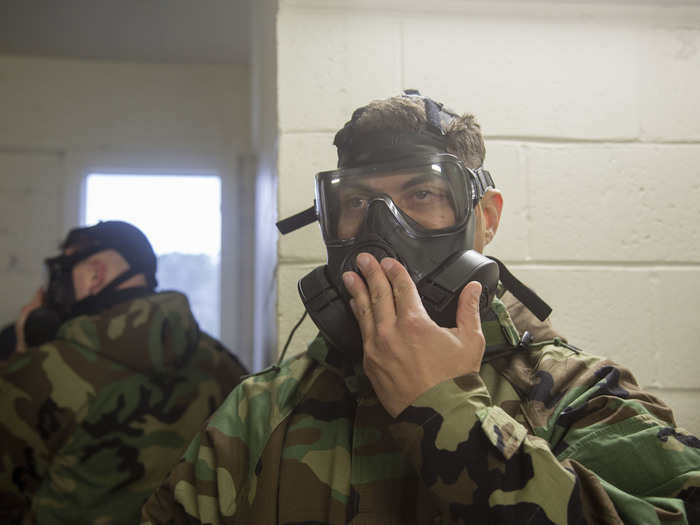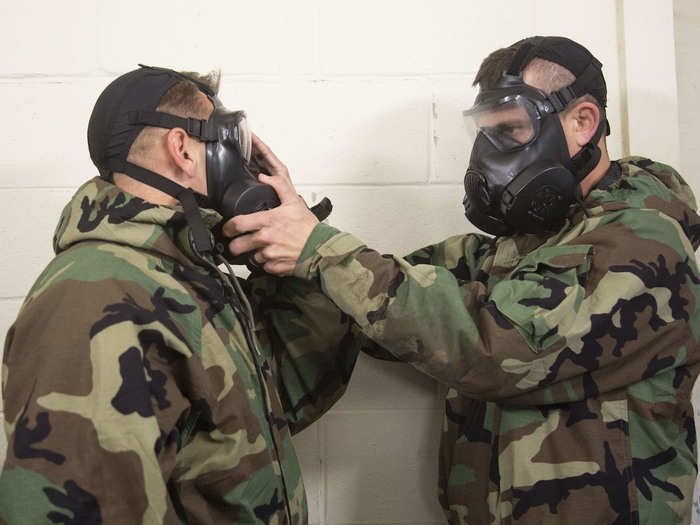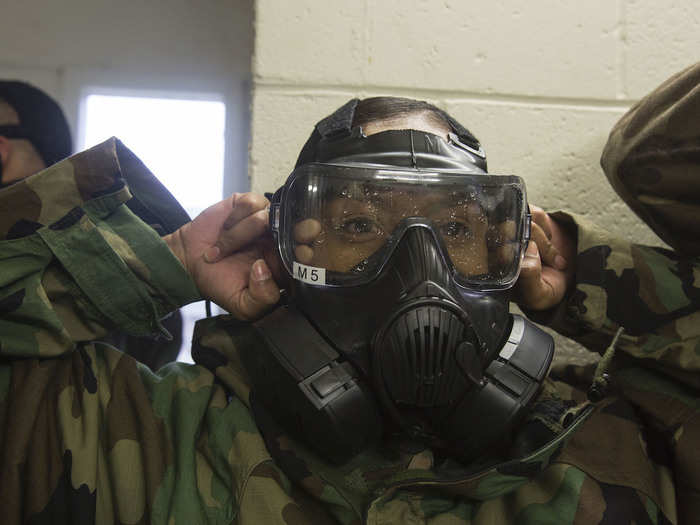During the training, CBRN Marines monitor individuals who may be struggling in the gas chamber.
"We calmly talk to them, and we take them step by step of what to do," Gilmore said. "If they're freaking out, we have them look at us and breathe. If we have to, we pull them out of the gas chamber and let them take their mask off and get a few more breathes before we send them back in there so they can calm down and realize they're breathing normally."
Having confidence in one's gear and checking it over twice before going inside helps individuals from losing their composure in the gas chamber.
"Check the seal on your mask and the filters before going inside," said Gilmore. "When you feel like freaking out, take a breath and realize that you're not breathing in any CS gas. You should have confidence in yourself and your gear."
Due to the rise in chemical attacks, proper training in the gas chamber could save a service member's life.
"Throughout Iraq, there have been pockets of mustard gas and a couple other CBRN-type gases that have been found, especially within underground systems," Kibler said.
"I know that when I was there in 2008, a platoon got hit with mustard gas when they opened up a Conex box. The entire platoon was able to don their masks. Gas attacks are out there; it might not be bombs, but it's out there somewhere."




